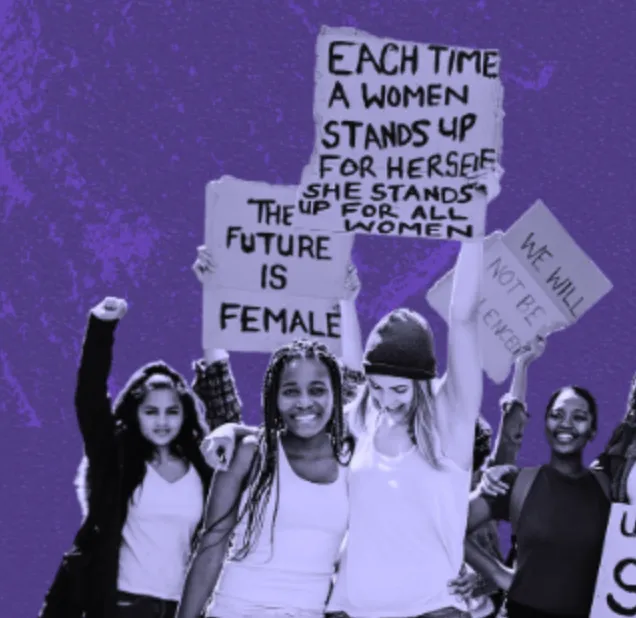South Africa declares gender-based violence and femicide a national disaster

GBVF is now officially a national disaster, with government urging urgent multisectoral action after protests led by Women for Change.
Image: IOL Graphics
The government has officially classified gender-based violence and femicide (GBVF) as a national disaster, following intensifying nationwide protests and growing concern over the abuse of women and children ahead of the G20 Leaders Summit.
The official classification comes after Women for Change led a nationwide shutdown on Friday November 21, the day before the summit, demanding stronger action against GBVF.
Minister of Cooperative Governance Velenkosini Hlabisa confirmed that the National Disaster Management Centre (NDMC) has formalised the classification.
He welcomed the decision by NDMC head Dr Bongani Elias Sithole, who invoked Section 23 of the Disaster Management Act, 2002 (Act No. 57 of 2002).
“This decisive action follows a thorough reassessment of previous reports and updated submissions from organs of state as well as civil organisations,” Hlabisa said.
“After evaluating the persistent and immediate life-safety risks posed by ongoing acts of violence, the NDMC has concluded that GBVF now meets the threshold of a potential disaster as defined in the Act.”
Under Sections 23 and 26 of the Act, responsibility for coordinating and managing the national disaster now rests with the National Executive, using existing legislation and already established contingency arrangements.
The classification calls on all organs of state to strengthen their support for GBVF response structures, activate contingency plans and ensure that necessary mechanisms are in place for effective national disaster management.
In accordance with Section 22, organs of state, the private sector, communities and individuals are urged to intensify prevention and risk-reduction efforts by implementing GBVF-related standards, procedures and laws.
Hlabisa added that “individuals are strongly encouraged to refrain from any acts of gender-based violence or femicide”.
National, provincial and municipal authorities are advised to implement multisectoral prevention, mitigation, relief and rehabilitation plans to address the disaster holistically.
Hlabisa emphasised that the classification does not invoke emergency powers.
Instead, it reinforces existing systems and aligns key initiatives such as the Inter-Ministerial Committee on GBVF, the Intergovernmental Committee on Disaster Management, the NATJOINTS Priority Committee, the 90-Day GBVF Acceleration Programme, the expansion of Thuthuzela Care Centres, the strengthening of sexual offences courts and reforms to the criminal justice system.
He said all affected organs of state must submit progress reports to the NDMC, as required under Section 24, enabling oversight of interventions by government departments, municipalities, NGOs and communities.
The notice outlines conditions for revoking the classification.
If no national state of disaster is declared, the classification will be revoked once GBVF can no longer be regarded as a disaster under the Act.
Should a national state of disaster be declared in the future, the classification will automatically lapse when that state of disaster ends, in terms of Section 27(5).
“This effort pulls together every sphere of government and every critical sector: policing, social development, justice, health, education, economic development and traditional leadership,” Hlabisa said.
“Above all, it confirms a fundamental truth: GBVF is not a women’s issue. It is a national crisis.”
The announcement follows comments by President Cyril Ramaphosa, who said South Africa will classify GBVF as a “crisis” requiring urgent intervention.
His remarks came amid intensifying pressure from advocacy group Women for Change, which has been demanding that GBVF be declared a national disaster.
Speaking in Boksburg on Thursday after receiving the declaration from the G20 Social Summit, Ramaphosa said women are “crying out” for stronger action.
“They need protection, support and assistance - from their government and from the men of South Africa,” he said.
“In recognising the plight of our women, we are now going to classify gender-based violence and femicide as a crisis, a crisis that needs to be addressed.”
Ramaphosa said all social partners agreed that “extraordinary and concerted action” is needed to end the crisis.
“The collective perspectives expressed at this summit will enable governments and decision-makers to better understand people’s lived experiences - what works, what doesn’t, and what must change.”
The official classification comes after Women for Change led a nationwide shutdown on November 21, the day before the summit, demanding stronger action against GBVF.
Operation Dudula and other civic groups also announced plans to protest during the G20 Summit.
Movement leader Zandile Dabula said their demonstrations would be peaceful and lawful, aimed at highlighting issues such as poverty and unemployment.
IOL